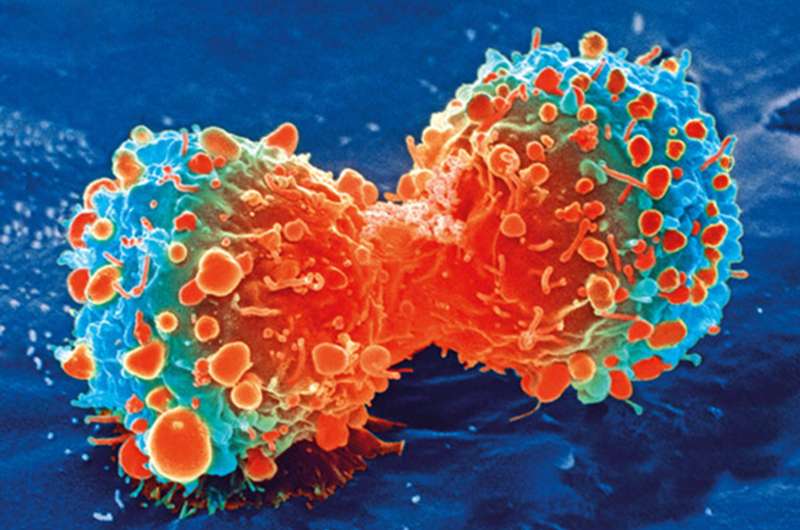Possible strategy for cancer treatment found in nuclear transport proteins

Although less often the focus of cancer research, recent studies have hinted at the possible importance of a type of protein known as nuclear transport receptors. Now researchers at Kanazawa University and collaborating institutions in Japan and the US have identified a nuclear transport receptor protein that plays a key role in processes that sustain aggressive head and neck cancers, as well as some of the mechanisms behind these processes.
"Current gene expression network approaches commonly focus on TFs [transcription factors], biasing network-based discovery efforts away from potentially important non-TF proteins," point out Masaharu Hazawa and Richard Wong and their colleagues in the report of their latest results. Taking a different tack, they noted that although abnormalities in nuclear transport receptors and their significance in the progression of cancer were not yet understood, recent studies had identified the importance of a type of nuclear transport receptor named karyopherin-α (KPNA)/importin-α in cell differentiation, whereby immature cells acquire the characteristics and functions of specific mature cell types. Tumors of non-differentiated cells are widely understood to be more aggressive.
Noting the role of KPNA in cell fate determination, Hazawa, Wong and colleagues re-analysed the Cancer Genome Atlas, which identified KPNA4 as most higly expressed subtype of KPNAs in head and neck squamous cancer cells (HNSCCs). Using a green fluorescent protein that had a nuclear localization signal, the researchers then investigated the role of KPNA4. They showed that while this green fluorescent protein would normally then localize in the nucleus, in HNSCCs where they had "knocked down" the gene expressing KPNA4 (so that the protein KPNA4 was not expressed) high levels of the green fluorescent protein remained in the cytoplasm instead. As well as the impact on nuclear transport of molecules with the nuclear localization signal, the researchers were also able to observe how silencing the KPNA4 expressing gene reduced the "cell proliferation, migration ability and resistance to radiation" in HNSCCs.
Further studies revealed not only the role of KPNA4 in repressing differentiation of epithelial cells, but also important transcription factors and signaling pathways controlled by KPNA4-dependent nuclear import systems. In their report the researchers conclude, "Taken together, these results indicate that targeting disease-specifically altered transport systems may serve as promising therapeutic strategies for cancer treatment."
More information: Masaharu Hazawa et al, Disease-specific alteration of karyopherin-α subtype establishes feed-forward oncogenic signaling in head and neck squamous cell carcinoma, Oncogene (2019). DOI: 10.1038/s41388-019-1137-3

















